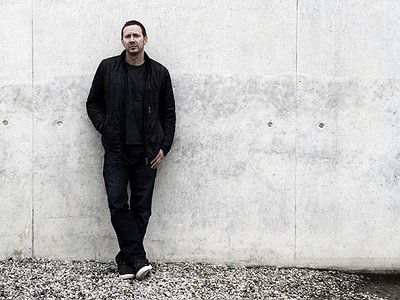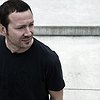The relationship with the audience is crucial for a DJ, and yet it seems to be a fragile one. How do you see the balance between giving the crowd what they want and treating them to something new?
I've seen DJs who really express themselves physically. They dance and they rouse the crowd and make a show. I'm exactly the opposite. I mean, the DJ just drops records, what's important is what comes out of the speakers and the whole atmosphere in the club. I don't understand the DJs who want to become more important than the music. The music we play is more important than us. Even if we found the right alchemy to drops records together, we have to be humble because we didn't make almost all of them. It's my job to pick up new music and help people discover it. But I don't want to play the clown behind the deck.
What makes a strong transition from one track to the next from your point of view and how do you see the relative importance of establishing a flow versus creating tension through suspenseful breaks in continuity?
I'm a DJ who plays in waves. I'm not really a tension DJ. I play strong, and then I hold back. It's not possible for a crowd in a club, in my opinion, as a dancer, as a clubber, to go non-stop at full strength. I like to have some tension and then some time to rest. If it's going straight from the bass to the top non-stop, it's like going to the gym you know.
I like to play a wide range of music, and so transition is really important because every track you play can lead to another one and lead off into another direction. As long as you keep the flow and energy, even it's just changing from house to techno and then back, people react better to a dynamic set.
A strong set can be truly be more than the sum of its parts. How, do you feel, is the music transformed in the hands of a DJ? In which way are you actively trying to create an experience that is more than just stringing together a few excellent records?
I try to create an experience that will leave the clubber and myself happy with the whole set, not just about those ten minutes or that last half an hour. I like to make the whole set interesting. These days though, it's not really the case anymore because lots of DJs are playing a whole set of deep house or prog house, you know just one kind of music. For me, a DJ should play different kinds of records. But it's personal.
DJs that just press play on their laptop may have given technology a bad name, but without technology, there'd be no DJing in the first place. What's your perspective on the relationship and the balance between technological advances, music and the art of DJing? How have particular technologies changed your style of DJing?
DJing is a matter of taste and it's about creating interest. The technology is not important. The only thing that's important is what's coming out of the speakers. Whether it's cassette, or reel to reel, or computers, it's just a medium. It doesn’t matter if you're playing CDs or records, it's about the music.
People are often speaking about the demise of the club scene, but the experience has remained as potent as ever. Why, do you feel, has the club remained such a great place for the discovery and appreciation of electronic music? How do you see the relationship between music and the space it is performed at?
Talking about clubs in general is difficult because every club is different. If you go to Berghain in Berlin or some other club in London, the crowd has a background in music and they are open to many different styles. But if you go somewhere else the people might expect something specific.
When I play at the Berghain I feel that I'm free. Anything can happen there. The crowd there is amazing. It's just a matter of human behaviour. The dancers, the DJ, we're human and we might play music with a computer but there is always a human behind the computer. Everything is under surveillance these days but in the club it's a free space. It's loud, so you have to focus on the music, everyone's there for the same reason; to have a good time. All kinds of people, are there, it's open-minded. It's like one of the last places on earth where you can feel free.
In how much, do you feel, is the club experience shaped by cultural differences? Do you, when travelling, take these cultural differences into consideration – and in how far has your approach as a DJ perhaps even benefited from playing in different countries and in front of different crowds?
I don't think I need to adapt. If someone books me, they know what I'm doing. So no, I don't really want to be different in every country. I do something special that I can take anywhere. I can't play any other way than I do. If I don't play my way, then I'm just being insincere.
It's always hard to talk about music in general because it's quite spiritual and personal and yet it belongs to everyone. I don't like to judge. I've changed so much in 20 years, my tastes have changed and music is one of the best things in life. It can change your mood and your vision, it can make a film more powerful. It's so present in our lives and we should respect it a bit more.
Please recommend two DJs to our readers which you feel deserve their attention.
There are some DJs who are great for one set and then not so great for the next. So it's difficult for me to recommend anyone specifically. Anyone can be really good, one day, somewhere.
Find out more at DJ Ripperton's website, www.ripperton.com




